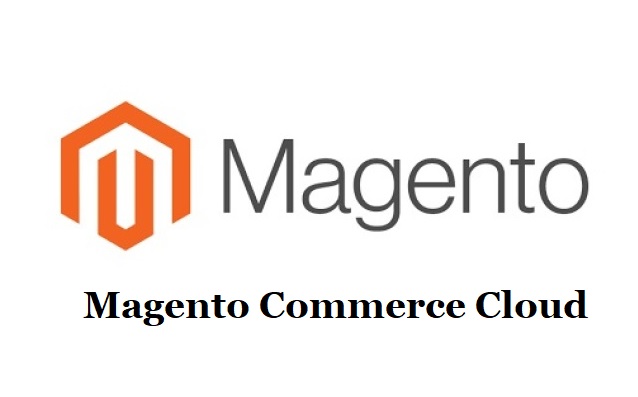What is Magento Commerce Cloud? Benefits & Features

Magento Commerce Cloud is a cloud-based hosting and deployment option for the Magento Commerce platform. Magento Commerce is a popular e-commerce platform for creating and managing online stores.
Also Read:- SEO Trends 2024: Atit Garg Predicts Major Shifts in the World of Digital Marketing
Magento Commerce Cloud offers a fully managed hosting and deployment environment for Magento Commerce websites. It provides a scalable infrastructure, optimal performance, and built-in tools and services to make Magento-based e-commerce website development, implementation, and management easier.
Magento Commerce Cloud’s key features and components include:
Cloud Infrastructure:
Magento Commerce Cloud hosts and scales the Magento Commerce website using cloud infrastructure providers such as Amazon Web Services (AWS) or Microsoft Azure. It offers a safe and scalable platform for e-commerce businesses.
Environments for Development and Staging:
Magento Commerce Cloud provides different environments for development, staging, and production. This enables developers to work on new features or updates without interfering with the live site. Before deploying updates to the production site, the staging environment allows for testing and quality assurance.
CI/CD (Continuous Integration and Deployment):
Magento Commerce Cloud interacts with popular continuous integration and delivery systems such as Git, Bitbucket, and Jenkins, providing automated and efficient development workflows. Code changes can be committed, automated tests run, and updates deployed to the staging and production environments by developers.
Performance and Scalability:
Magento Commerce Cloud optimizes e-commerce website performance and scalability. It makes use of caching technologies, CDN (Content Delivery Network) integration, and auto-scaling features to ensure that websites are quick and responsive even during peak traffic periods.
Security and Compliance:
To safeguard e-commerce websites from security concerns, Magento Commerce Cloud combines security technologies and adheres to industry best practices. It incorporates advanced security features, regular patching and upgrades, and PCI DSS (Payment Card Industry Data Security Standard) compliance.
Managed Services (MS):
Managed services are provided by Magento Commerce Cloud to handle infrastructure monitoring, database management, backup and recovery, and system maintenance activities. This allows firms to concentrate on their e-commerce activities rather than the underlying infrastructure administration.
Help and assistance:
Magento Commerce Cloud gives you access to Magento specialists and support teams who can help you with technical problems, performance optimization, and troubleshooting. It ensures that firms running their e-commerce websites on the platform receive prompt support and assistance.
Magento Commerce Cloud Architecture
Magento Commerce Cloud’s design is based on a cloud-based, distributed architectural model that delivers scalability, high availability, and performance for Magento-based e-commerce websites. Here is an overview of the Magento Commerce Cloud architecture’s core components and their interactions:
Instances of Web Applications
The web application instances act as the architecture’s front-end layer, handling incoming HTTP requests from users. These instances are in charge of processing user requests, producing web pages, and handling customer interactions and run the Magento application code.
Load Balancers
To provide high availability and scalability, load balancers sit in front of web application instances and divide incoming traffic over many instances. They distribute requests equally, optimizing resource use and boosting overall website performance.
Content Distribution Network (CDN)
A CDN is frequently linked with the Magento Commerce Cloud architecture to more efficiently distribute static material to consumers, such as photos, CSS files, and JavaScript files. The CDN caches these static assets in geographically dispersed edge servers, decreasing burden on web application instances and increasing content delivery speed.
Database
Magento Commerce Cloud stores and manages website data, such as product catalogs, customer information, orders, and configurations, using a database. To address the Magento application’s data storage needs, the architecture often leverages a highly available and scalable database solution, such as Amazon RDS or Azure Database.
Storage of Files
Media files, such as product photos, videos, and downloadable content, are stored in file storage. Magento Commerce Cloud frequently connects with cloud-based file storage providers such as Amazon S3 or Azure Blob Storage to efficiently store and serve these files.
Elasticsearch
Elasticsearch is a robust search and analytics engine that is frequently used into the Magento Commerce Cloud architecture. It allows for faster and more accurate product searches, faceted navigation, and catalog browsing, all of which improve the user experience on the e-commerce website.
Services for Integration
The Magento Commerce Cloud design enables integration with a wide range of third-party systems and services, including payment gateways, shipping providers, ERP systems, CRM systems, and marketing tools. These interfaces allow for smooth data sharing and the streamlining of corporate processes across multiple systems.
Logging and monitoring
Monitoring and logging tools are critical components of the architecture for optimizing performance, identifying faults, and troubleshooting issues. These technologies provide insights into system metrics, application performance, and error logs, allowing for proactive monitoring and problem resolution.
Continuous Integration (CI) and Deployment
Magento Commerce Cloud encourages deployment automation and continuous integration. It interfaces with CI/CD platforms like as Git, Bitbucket, and Jenkins to automate code change deployment, perform tests, and promote updates from staging to production environments.
Magento Commerce Cloud vs BigCommerce
Both Magento Commerce Cloud and BigCommerce are popular e-commerce systems with a variety of features and functionalities for developing and managing online stores. Here’s a side-by-side comparison of Magento Commerce Cloud and BigCommerce:
Hosting and Deployment
Magento Commerce Cloud is a hosting and deployment solution that is hosted in the cloud. It provides a managed environment for hosting Magento Commerce websites on cloud infrastructure providers such as Amazon Web Services or Microsoft Azure.
BigCommerce
BigCommerce handles hosting and infrastructure management for this fully hosted platform. Users do not need to be concerned about server administration or hosting infrastructure.
Magento Commerce Cloud vs Salesforce Commerce Cloud
| Cloud-based architecture | Amazon Web Service | Proprietary, Multi-Tenant |
| Security | Advanced Security | Good Security |
| Bulk Data Transfer | Supported | Not Supported |
| Degree of Control | Unlimited (full source code access) | Limited (no access to the shared core) |
| Multiple Storefronts | Supported | Supported |
Magento Commerce Cloud vs Shopify Plus
| Magento | Shopify | |
| Cloud-based architecture | Amazon Web Service | Proprietary |
| Security | Advanced Security | Good Security |
| Bulk Data Transfer | Supported | Supported |
| Degree of Control | Unlimited (full source code access) | Limited (no access to the shared core) |
| Multiple Storefronts | Supported | Supported |
FAQs Magento Commerce Cloud
Q1: What is Magento Commerce Cloud?
Magento Commerce Cloud is a cloud-based hosting and deployment option for the Magento Commerce platform. It offers a completely managed environment for hosting and installing Magento-powered e-commerce websites.
Q2: What are the benefits of using Magento Commerce Cloud?
Simplified deployment and maintenance, scalability and high availability, optimized performance, automatic updates and security patches, built-in staging and development environments, and interaction with cloud infrastructure providers are some of the key features of Magento Commerce Cloud.
Q3: How does Magento Commerce Cloud differ from self-hosted Magento Commerce?
In terms of hosting and management, Magento Commerce Cloud differs from self-hosted Magento Commerce. Magento Commerce Cloud manages and hosts the hosting infrastructure, whereas self-hosted Magento Commerce needs the user to set up and manage their own hosting environment.
Q4: Is Magento Commerce Cloud suitable for small businesses?
Magento Commerce Cloud is intended for businesses of all kinds, including small, medium, and big corporations. However, smaller enterprises may find the expense and complexity of Magento Commerce Cloud more suitable for larger organizations.
Q5: Can I customize my Magento Commerce Cloud website?
Yes, Magento Commerce Cloud allows for website customisation. It allows you to customize the style, functionality, and features of your online store. Magento’s comprehensive APIs and developer tools can be used by developers to construct customized solutions.
Q6: How does Magento Commerce Cloud ensure scalability and high availability?
Magento Commerce Cloud makes use of cloud infrastructure providers like AWS and Azure to enable scalable and highly available environments. It makes use of features like as auto-scaling, load balancing, and redundancy to assure your e-commerce website’s optimal performance and availability.
Q7: Does Magento Commerce Cloud support multi-store functionality?
Yes, Magento Commerce Cloud supports multi-store capability, which enables organizations to run many web stores from a single installation. For organizations with several brands or regional variations, this allows for centralized control and efficient operations.
Q8: Is Magento Commerce Cloud PCI compliant?
Yes, Magento Commerce Cloud is built to meet the Payment Card Industry Data Security Standard (PCI DSS). It offers a safe environment for processing and storing sensitive payment card information.
Q9: Can I integrate third-party extensions and services with Magento Commerce Cloud?
Yes, Magento Commerce Cloud supports integration with a wide range of third-party extensions, services, and apps. It offers an ecosystem of extensions and APIs for smooth integration with leading payment gateways, shipping suppliers, ERP systems, CRM platforms, and other services.
Q10: What support and assistance are available for Magento Commerce Cloud users?
Magento Commerce Cloud offers its customers support and assistance. Magento provides technical support, documentation, training resources, and a community forum where users can seek assistance and guidance with any issues or inquiries.










